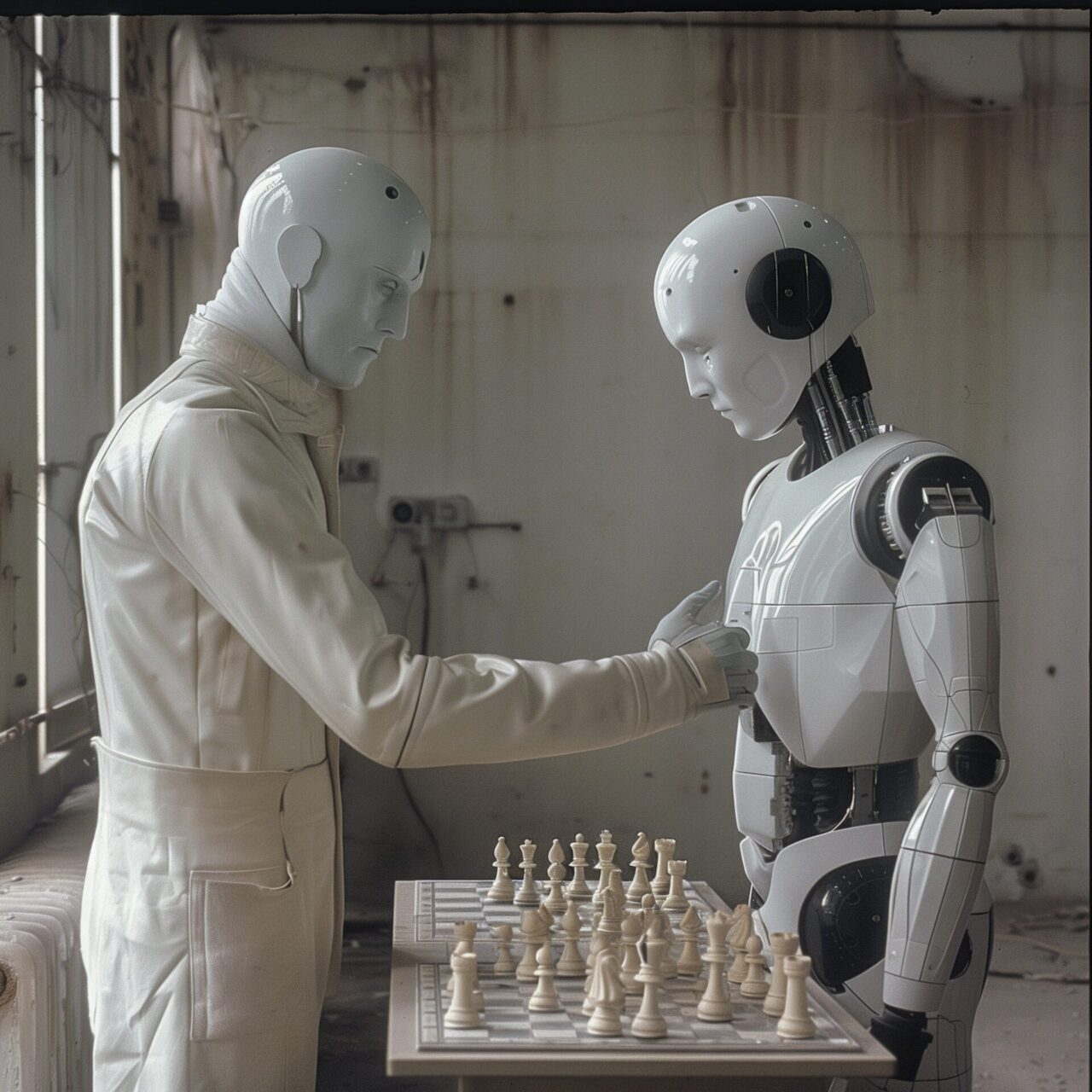
The philosophy of chess and artificial intelligence
At first glance, chess, an ancient board game known for its profound strategic requirements, and modern artificial intelligence (AI), which is increasingly permeating our lives, appear to have little in common. However, a closer look reveals fascinating parallels between classical chess strategies and the decision-making processes of AI. This article explores the intersection of these two worlds to show how the timeless art of chess offers insights into the workings and potentials of AI.
Chess – A game of kings and algorithms
Chess is not just a game, it is a comprehensive language of logic, prediction and control. Every move requires foresighted thinking, precise tactics and in-depth knowledge of the opponent. These aspects are also reflected in the development of AI systems, especially those based on game simulations and decision-making strategies. Chess engines such as Deep Blue and AlphaZero have shown that AI has the ability not only to challenge human players, but to surpass them in the complexity of the game.
Cognitive warfare: chess and AI strategies
The analogy between chess and AI goes beyond the mere game. Both fields use a mix of calculated aggression and defence, with multiple moves planned in advance. Chess fosters a deep understanding of the balance of risk and reward, a skill that is essential for algorithm development in AI. AI systems based on neural networks learn similarly to chess players by studying thousands of games to recognise patterns and suggest optimal moves.
The psychology of unpredictability
Another fascinating aspect is psychology, which plays a role in both chess and AI. In chess, the aim is to see through your opponent’s intentions and, if necessary, to deceive them. AI systems, especially in the field of machine learning, develop similar capabilities by not only reacting, but also anticipating and adapting. This dynamic adaptability makes AI particularly valuable in complex environments – from financial market analysis to autonomous vehicle navigation.
Ethics on the chessboard and in AI
The ethical dimension of both disciplines offers another interesting parallel. In chess, there are clear rules and etiquette that must be adhered to despite the competitive nature of the game. AI raises similar ethical questions, particularly regarding the transparency of algorithms and the impact of their decisions on real life. The need to integrate ethical considerations into AI development reflects the discipline and fairness that are also required in chess.
The link between the philosophy of chess and the strategies of AI shows that we can learn a lot from this classic game when it comes to how we design and implement modern technologies. AI can be seen as an extension of the human mind, much like chess is a testing ground for strategic thinking. Both challenge our imagination and force us to think beyond the next move, both on the board and in the larger game of technology development.
In this era of digital transformation, chess and AI are not just metaphors for each other; they are complementary models that help us think about intelligence, ethics and the future of strategic thinking.


